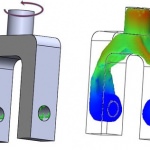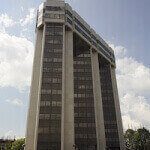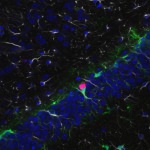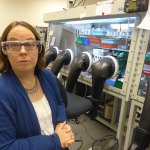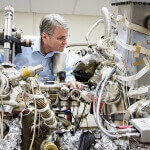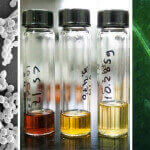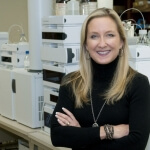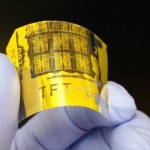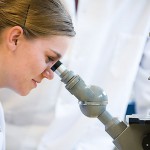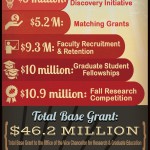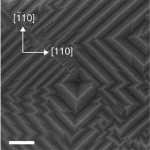Tag Wisconsin Alumni Research Foundation
UW tech spinoff promises to rethink design with ultra-fast software
Everything changes if you can figure out a way to keep a "hungry" computer processor fed.
Twelve professors receive Romnes Faculty Fellowships
Twelve promising young faculty have been honored with Romnes Faculty Fellowships. They will receive a $50,000 award for research, supported by the Wisconsin Alumni Research Foundation.
Madison-made electrolyte going big at global battery manufacturer
Silatronix, a UW–Madison spinoff, says its formulation will lead to safer lithium-ion batteries used in phones, laptops and tablets.
UW2020: WARF Discovery Initiative proposals selected
Reviewers identified ambitious, early stage research ideas and infrastructure investments in an effort to jump-start innovative interdisciplinary research.
Six appointed to WARF professorships
The Wisconsin Alumni Research Foundation named professorships include $75,000 in research support from WARF over five years.
Bioenergy Center, collaborators report 500th invention
The Great Lakes Bioenergy Research Center and two partners reported significant progress in their mission to develop technologies that will bring advanced biofuels to the marketplace.
Autism test on the horizon as firm screens for signatures of disorder
Early diagnosis for autism can allow quicker, better treatment. In the best case, it could pinpoint ways to reduce the symptoms or even prevent the disorder.
WARF’s Gulbrandsen to receive lifetime award
His tenure has seen WARF increase grant support for UW–Madison, expand its entrepreneurial mission, and chart scientific milestones from embryonic stem cells to life-saving vaccine research.
UW–Madison engineers reveal record-setting flexible phototransistor
Inspired by mammals' eyes, University of Wisconsin–Madison electrical engineers have created the fastest, most responsive flexible silicon phototransistor ever made.
150 respond to call for innovative research proposals
UW–Madison’s latest research initiative — UW2020: WARF Discovery Initiative — has received an overwhelming response from researchers eager to jump-start their innovative projects.
WARF wins patent infringement lawsuit against Apple
A federal jury has found that Apple infringed a patent owned by the Wisconsin Alumni Research Foundation for an invention that significantly improves the efficiency…
WARF Innovation Award winners take on colon cancer detection, tomorrow’s plastic
A blood test that could save lives and a sun-powered scheme to turn biomass into valuable compounds have won Innovation Awards from the Wisconsin Alumni Research Foundation (WARF).
WARF draws top inventors, entrepreneurs for fall discussion series
To cap its 90th anniversary celebration, the Wisconsin Alumni Research Foundation (WARF) is hosting a four-part discussion series exploring the cycle of innovation.
WARF board speaks out on proposed fetal tissue ban
The Board of Trustees of the Wisconsin Alumni Research Foundation (WARF) today announced unanimous opposition to a state legislative proposal to ban the use of fetal tissue in scientific research.
Discovery in growing graphene nanoribbons could enable faster, more efficient electronics
Graphene, an atom-thick material with extraordinary properties, is a promising candidate for the next generation of dramatically faster, more energy-efficient electronics. However, scientists have struggled to fabricate the material into ultra-narrow strips, called nanoribbons, that could enable the use of graphene in high-performance semiconductor electronics.
Open house features one-stop shopping for corporate partners
A daylong event Aug. 19 at the University of Wisconsin–Madison will acquaint businesses with the range of research, collaboration, recruitment and educational opportunities on campus.
Six faculty members appointed to WARF named professorships
Six members of the University of Wisconsin–Madison faculty have been appointed to Wisconsin Alumni Research Foundation named professorships.

